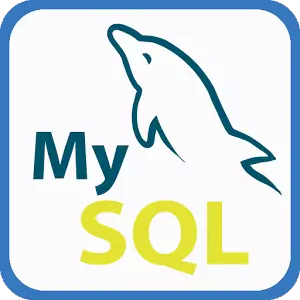Recommended 10 tutorials on automatic failure examples
1. Server planning Master: 192.168.0.152 Slave: 192.168.0.153 192.168.0.154 Monitoring server: 192.168.0.154 Note: In the real production environment, it is best to have a separate server to monitor database Replication. Here I will use a Salve directly. The server is used as a monitoring server. 2. Install MySQL Utilities and MySQL Connectors. Download MySQL Utilities and MySQL Connectors and install them on the 192.168.0.154 (monitoring server) server. Execute the following commands to install the downloaded MySQL Utilities and MySQL Connectors. Syum install&
1. MySQL-Detailed analysis of Replication monitoring and automatic failover

##Introduction: 1. Server Planning Master: 192.168.0.152 Slave: 192.168.0.153 192.168.0.154 Monitoring server: 192.168.0.154 Note: It is best to have a separate server to monitor the database Replication in the real production environment. Here I will directly use a Salve server as the monitoring server. 2. Install MySQL Utilities and MySQL
2. MySQL automatic failover tool--mysqlfailover

Introduction: mysqlfailover is an important high-availability command included in the MySQL utilities toolkit, which is used to perform health testing on the master-slave replication architecture and implement automatic failover. It will regularly detect the health status of each node at specified intervals. Once it captures that the master node is unavailable, it will trigger failover-related actions and automatically perform failover to the best slave server at the moment. At the same time, other slave nodes in the entire master-slave architecture will point to the new master node, automatically completing the master-slave topology update.
3. Mongo server cluster configuration learning two

4.
MongoDB replica set automatic failover

5.
MongoDB replica set construction to achieve read and write sharing

6.
MySQL dual-machine hot standby + Heartbeat cluster + automatic failover (2 seconds)
Introduction: Environment description: This environment consists of two mysql databases and heartbeat. The IP of one is 192.168.10.197 and the other is 192.168.10.198. The VIP that provides external services is7.
MHA official document translation
Introduction: Overview MHA can achieve automatic fault detection and failover in a short period of time, usually within 10-30 seconds; in the replication framework, MHA can well solve the data consistency during the replication process Sexual problem, since there is no need to add additional servers to the existing replication, only one manager node is needed, and one Manager can manage multiple sets of replication, so #Introduction: MHA can realize automatic fault detection and failover within 10 to 30 seconds. It is suitable for high availability and data integrity requirements. occasion. To achieve seamless switching, you also need to rely on VI Introduction: MHA provides three ways to implement failover, namely automatic failover, which requires enabling MHA monitoring; manual failover without monitoring, and online manual switching. 10. Initial connection of Sqlserver2008 database mirroring session Introduction: After the sqlserver2008 database mirroring service configuration is completed, everyone You will find that we have two database services. These two services can achieve automatic failover. So how can our program automatically connect to a normal database? This question is very simple. Use ADO.NET or SQL Native Client to automatically connect to the failed partner [Related Q&A recommendations]:
The above is the detailed content of Recommended 10 tutorials on automatic failure examples. For more information, please follow other related articles on the PHP Chinese website!

Hot AI Tools

Undresser.AI Undress
AI-powered app for creating realistic nude photos

AI Clothes Remover
Online AI tool for removing clothes from photos.

Undress AI Tool
Undress images for free

Clothoff.io
AI clothes remover

Video Face Swap
Swap faces in any video effortlessly with our completely free AI face swap tool!

Hot Article

Hot Tools

Notepad++7.3.1
Easy-to-use and free code editor

SublimeText3 Chinese version
Chinese version, very easy to use

Zend Studio 13.0.1
Powerful PHP integrated development environment

Dreamweaver CS6
Visual web development tools

SublimeText3 Mac version
God-level code editing software (SublimeText3)

Hot Topics
 1662
1662
 14
14
 1418
1418
 52
52
 1311
1311
 25
25
 1261
1261
 29
29
 1234
1234
 24
24
 When might a full table scan be faster than using an index in MySQL?
Apr 09, 2025 am 12:05 AM
When might a full table scan be faster than using an index in MySQL?
Apr 09, 2025 am 12:05 AM
Full table scanning may be faster in MySQL than using indexes. Specific cases include: 1) the data volume is small; 2) when the query returns a large amount of data; 3) when the index column is not highly selective; 4) when the complex query. By analyzing query plans, optimizing indexes, avoiding over-index and regularly maintaining tables, you can make the best choices in practical applications.
 Can I install mysql on Windows 7
Apr 08, 2025 pm 03:21 PM
Can I install mysql on Windows 7
Apr 08, 2025 pm 03:21 PM
Yes, MySQL can be installed on Windows 7, and although Microsoft has stopped supporting Windows 7, MySQL is still compatible with it. However, the following points should be noted during the installation process: Download the MySQL installer for Windows. Select the appropriate version of MySQL (community or enterprise). Select the appropriate installation directory and character set during the installation process. Set the root user password and keep it properly. Connect to the database for testing. Note the compatibility and security issues on Windows 7, and it is recommended to upgrade to a supported operating system.
 Can mysql and mariadb coexist
Apr 08, 2025 pm 02:27 PM
Can mysql and mariadb coexist
Apr 08, 2025 pm 02:27 PM
MySQL and MariaDB can coexist, but need to be configured with caution. The key is to allocate different port numbers and data directories to each database, and adjust parameters such as memory allocation and cache size. Connection pooling, application configuration, and version differences also need to be considered and need to be carefully tested and planned to avoid pitfalls. Running two databases simultaneously can cause performance problems in situations where resources are limited.
 MySQL: Simple Concepts for Easy Learning
Apr 10, 2025 am 09:29 AM
MySQL: Simple Concepts for Easy Learning
Apr 10, 2025 am 09:29 AM
MySQL is an open source relational database management system. 1) Create database and tables: Use the CREATEDATABASE and CREATETABLE commands. 2) Basic operations: INSERT, UPDATE, DELETE and SELECT. 3) Advanced operations: JOIN, subquery and transaction processing. 4) Debugging skills: Check syntax, data type and permissions. 5) Optimization suggestions: Use indexes, avoid SELECT* and use transactions.
 RDS MySQL integration with Redshift zero ETL
Apr 08, 2025 pm 07:06 PM
RDS MySQL integration with Redshift zero ETL
Apr 08, 2025 pm 07:06 PM
Data Integration Simplification: AmazonRDSMySQL and Redshift's zero ETL integration Efficient data integration is at the heart of a data-driven organization. Traditional ETL (extract, convert, load) processes are complex and time-consuming, especially when integrating databases (such as AmazonRDSMySQL) with data warehouses (such as Redshift). However, AWS provides zero ETL integration solutions that have completely changed this situation, providing a simplified, near-real-time solution for data migration from RDSMySQL to Redshift. This article will dive into RDSMySQL zero ETL integration with Redshift, explaining how it works and the advantages it brings to data engineers and developers.
 Laravel Eloquent ORM in Bangla partial model search)
Apr 08, 2025 pm 02:06 PM
Laravel Eloquent ORM in Bangla partial model search)
Apr 08, 2025 pm 02:06 PM
LaravelEloquent Model Retrieval: Easily obtaining database data EloquentORM provides a concise and easy-to-understand way to operate the database. This article will introduce various Eloquent model search techniques in detail to help you obtain data from the database efficiently. 1. Get all records. Use the all() method to get all records in the database table: useApp\Models\Post;$posts=Post::all(); This will return a collection. You can access data using foreach loop or other collection methods: foreach($postsas$post){echo$post->
 The relationship between mysql user and database
Apr 08, 2025 pm 07:15 PM
The relationship between mysql user and database
Apr 08, 2025 pm 07:15 PM
In MySQL database, the relationship between the user and the database is defined by permissions and tables. The user has a username and password to access the database. Permissions are granted through the GRANT command, while the table is created by the CREATE TABLE command. To establish a relationship between a user and a database, you need to create a database, create a user, and then grant permissions.
 MySQL: The Ease of Data Management for Beginners
Apr 09, 2025 am 12:07 AM
MySQL: The Ease of Data Management for Beginners
Apr 09, 2025 am 12:07 AM
MySQL is suitable for beginners because it is simple to install, powerful and easy to manage data. 1. Simple installation and configuration, suitable for a variety of operating systems. 2. Support basic operations such as creating databases and tables, inserting, querying, updating and deleting data. 3. Provide advanced functions such as JOIN operations and subqueries. 4. Performance can be improved through indexing, query optimization and table partitioning. 5. Support backup, recovery and security measures to ensure data security and consistency.




